
Giving A Voice To The Voiceless: 8 Unsung Heroes
This post is sponsored by Ginny Moon by Benjamin Ludwig, published by Park Row Books.
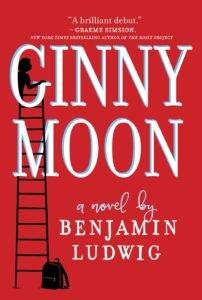
Meet Ginny Moon. She’s mostly your average teenager—she plays flute in the school band and has weekly basketball practice. But Ginny is autistic. And so what’s important to her might seem a bit…different: starting every day with exactly nine grapes for breakfast, singing along to Michael Jackson, taking care of her baby doll…and crafting a secret plan of escape.
Ginny has been in foster care for years and for the first time in her life she has found her “forever home.” But Ginny has other plans…
I’ve always loved stories about nontraditional heroes. I don’t need another tale about a straight white knight riding in to save the day. I want the unsung heroes of history. I want the love stories of people relegated to the margins of traditional narratives. I want the futures that deconstruct the societal ideals of today and showcase the potential worlds of tomorrow. Here are eight great books featuring not-so-average heroes.
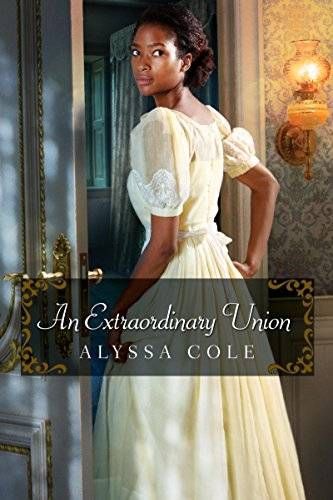
I’ve been talking about how amazing Alyssa Cole’s latest historical romance is since I first had the chance to read it, but it’s an astonishing book about one of my new favorite heroines. Elle Burns, a freedwoman with an eidetic memory, goes undercover in Confederate Richmond to spy for the Union. It’s a moving romance between Elle and Pinkerton spy Malcolm, but there is no soft lens shying away from the harsh reality of their situation. One of the (many) reasons Elle is such an efficient spy is because the Confederates speak freely in front of their slaves, who they view as little more than useful household objects, rather than people. An Extraordinary Union is a powerful, unflinching look at a heroine traditionally ignored, not only in fiction, but in nonfiction narratives of the Civil War.
The Lawrence Browne Affair by Cat Sebastian
The Earl of Radnor is a madman, or so the locals would have you believe. In truth, Lawrence Browne, the Earl of Radnor, is a brilliant scientist, a solitary man allowing his estate to crumble around him as he largely ignores the outside world in hopes that the ‘madness’ in his line will die with him. Sebastian paints a vivid picture of Lawrence, who manages his anxiety and need for order in a myriad of ways, including what might be the first therapy dog I’ve seen in a historical romance. Not only do we see a happy ending for a historical male/male couple, but we see how Georgie is a supportive partner to Lawrence, making sure that his boundaries and needs are respected and accommodated. Homosexual couples and people living with mental illness have lived fulfilling lives throughout history and it’s wonderful to see more romances being written that acknowledge this.
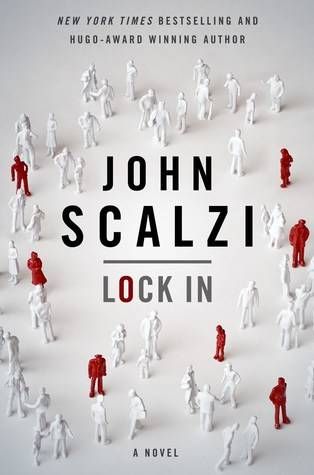
Rookie FBI agent Chris Shane moves through the world two ways: with the assistance of a threep, a robotic mobility device remotely controlled from Shane’s home and fondly nicknamed after Star Wars’ C-3PO; or, through a shared neural-network world accessible to people living with Haden’s, which causes locked-in syndrome. The world of Lock In is one in which numerous accessibility issues — and their intersections with class, gender, wealth, and race — are frankly discussed and thoughtfully examined. Shane is shown to have a rich personal life, both online and in the real world, which is a reality for many people living with disabilities even if it’s rarely depicted in our media.
Nimona by Noelle Stevenson
Though I love Nimona‘s titular heroine, my heart truly belongs to Ballister Blackheart. Not allowed to try for his knighthood after a training incident results in the loss of his arm, Blackheart turns to a life of ‘villainy.’ Blackheart becomes a scientist, crafting his own prosthetic arm, and although he keeps up the pretense of being a villain he’s determined to keep an eye on his former comrades and prevent them from doing harm to the kingdom’s citizens. Stevenson dissects her delightfully anachronistic world’s morals and mores, cheerfully obliterating expectations and showcasing deft worldbuilding and multifaceted characters.
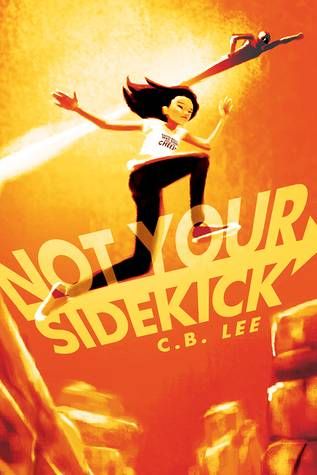
This charming and well-paced tale of the non-powered daughter of two minor superheroes in a sort-of post-apocalyptic world is one of my favorite YA novels. Jessica Tran, a bisexual teenager of Chinese and Vietnamese descent, is smart, sweet, and believably insecure. Not Your Sidekick tells the story of her internship with her parents’ nemesis and villain, her discovery of nefarious plans in the superhero community, as well as her growing friendship with (and crush on) popular girl Abby. The sequel, Not Your Villain, about Jessica’s friend Bells Broussard, a trans teen with shapeshifting superpowers, will release in October of 2017.
On the Edge of Gone by Corinne Duyvis
Duyvis skillfully takes a huge story (there’s a comet heading for Earth that will destroy life as we know it) and distills it into a personal one (Denise must find a way to keep herself, her mother, and her sister alive). Denise is autistic and biracial, and these aspects of her identity shape how both she, and the people in power within the narrative, view her and her family. On the Edge of Gone asks the hard questions about the ease with which people accept that survivors’ luck comes at the cost of the highest sacrifice from others. It examines what society sees as essential and important to humanity’s survival, and how those metrics often come up wanting.
Postcards from the Edge by Carrie Fisher
I’m a longtime admirer of Carrie Fisher, particularly for her fearless discussions of her mental health struggles (I, like Carrie, have bipolar disorder). I’ve been working my way through her books since her death in December, and recently read Postcards from the Edge for the first time. This semi-autobiographical novel tells the story of a movie star struggling to put her life back together after a drug overdose. It frankly examines addiction and mental health with Carrie’s trademark humor. As Carrie was so fond of saying, “If my life wasn’t funny it would just be true, and that is unacceptable.
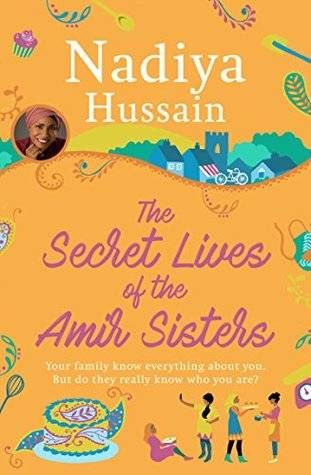
In her debut novel, Nadiya Hussain (best known for winning the sixth season of Great British Bakeoff) tells the stories of Fatima, Farah, Bubblee, and Mae — the only young Muslims living in their English village of Wyvernage. The sisters’ tale is told with great warmth and humor, examining the ways they each project an image of happiness while internally struggling. Hussain explores themes of cultural expectations and identity, family, and love. The familiar elements of a story of sisters working through hard times together — comparisons to Little Women are frequent and not unjustified — are given brilliant new life in telling the Amir sisters’ story.











